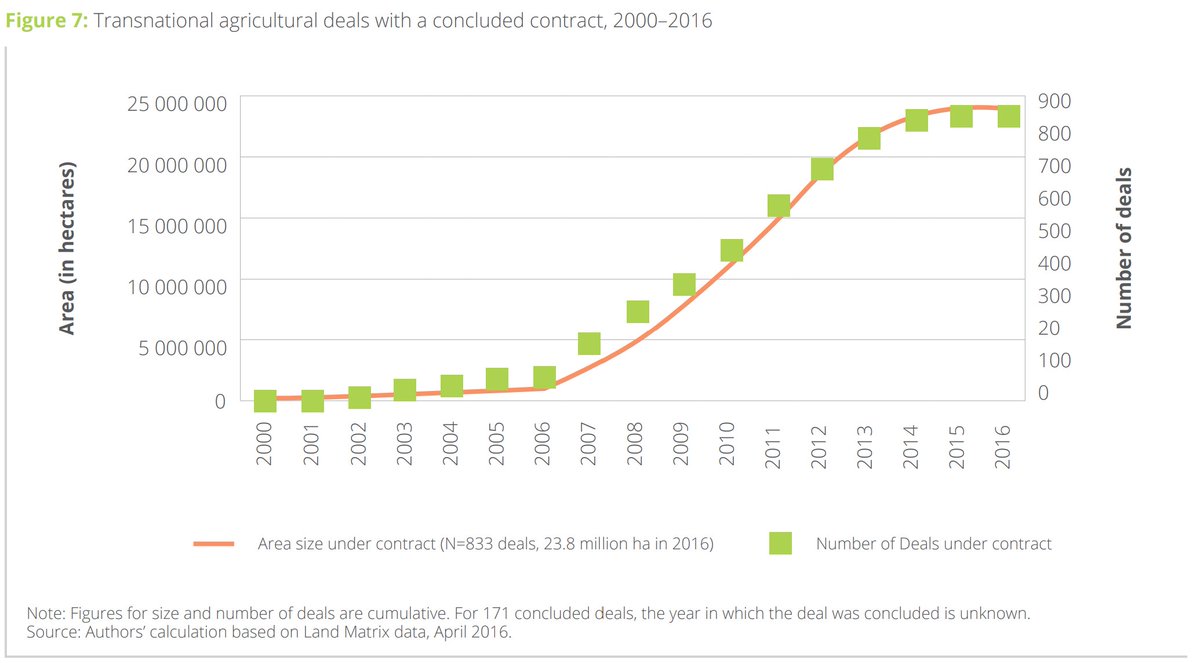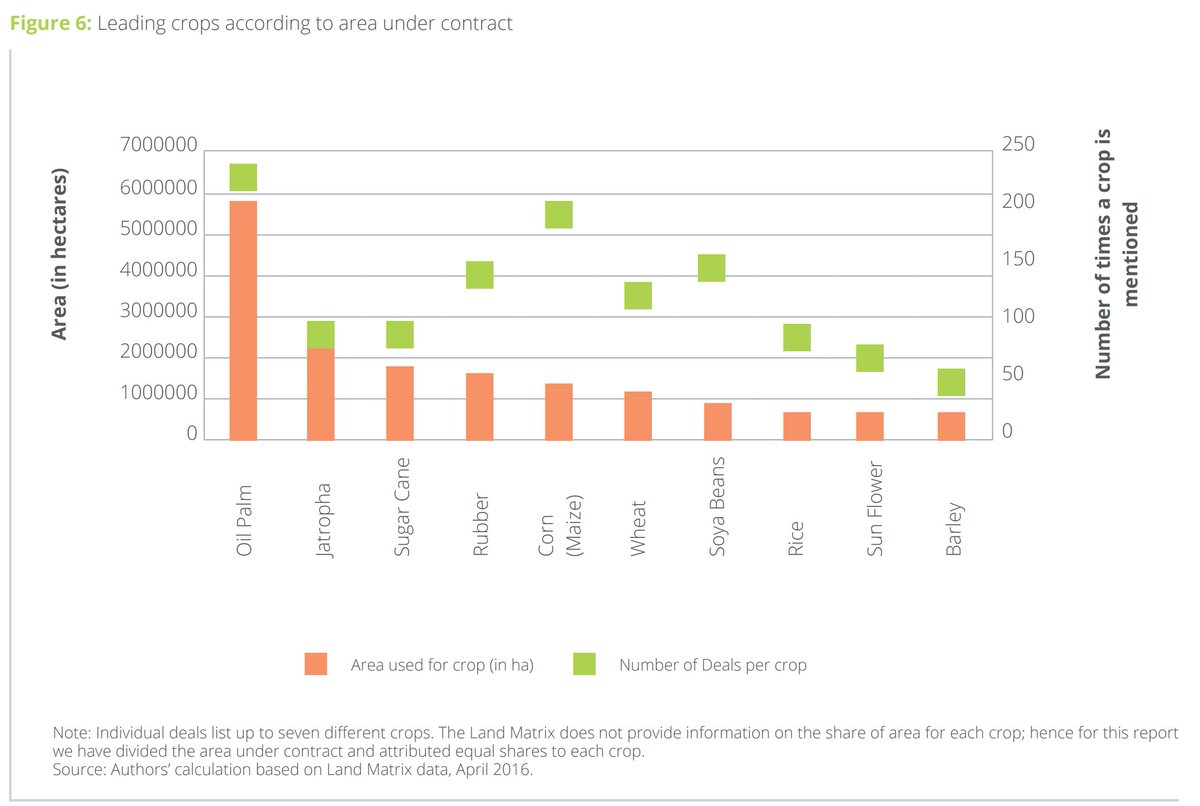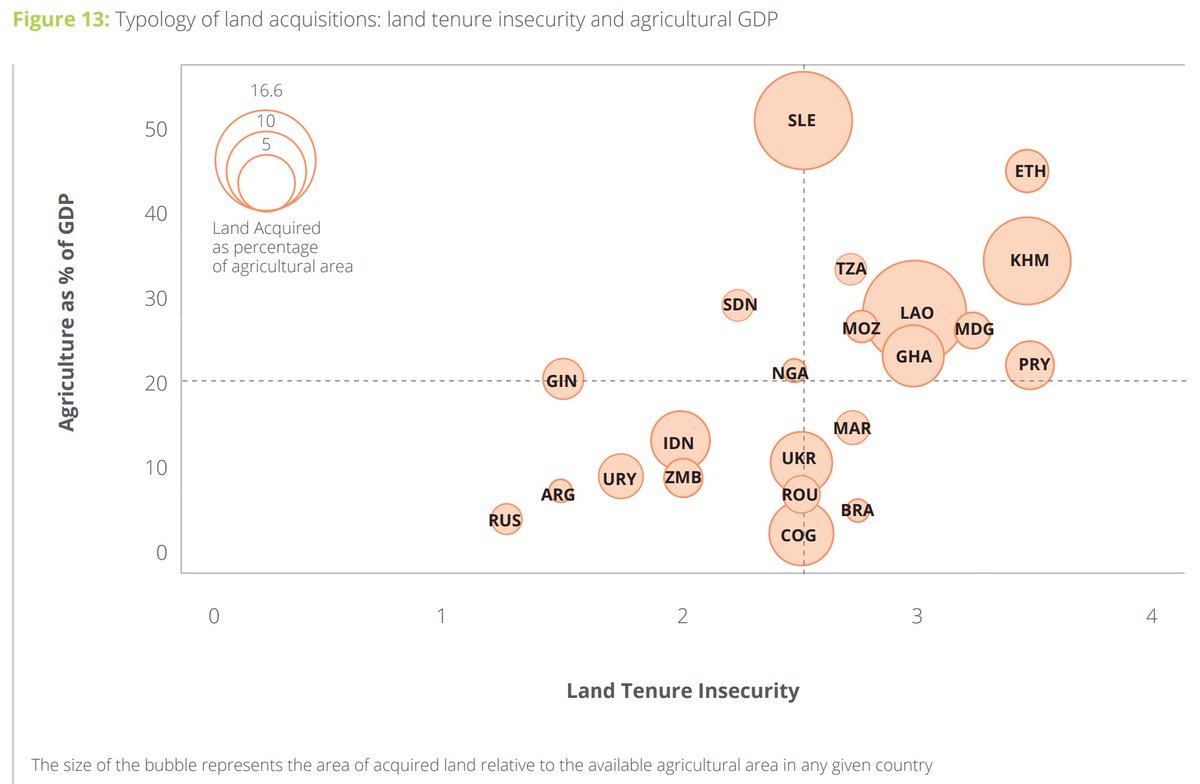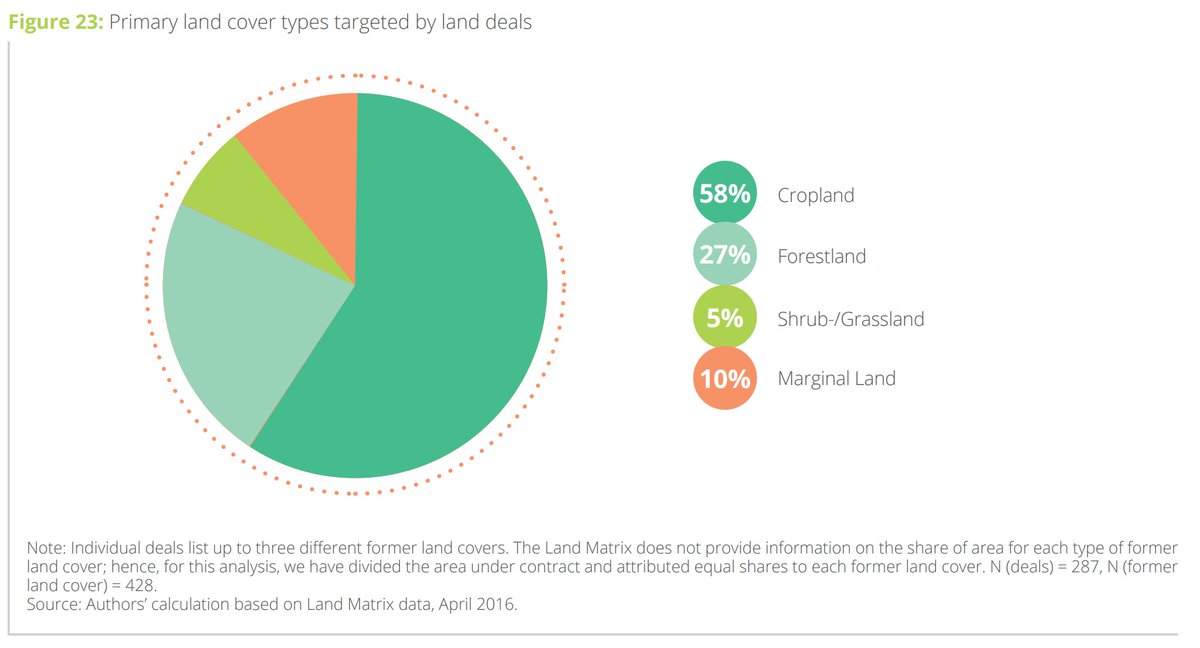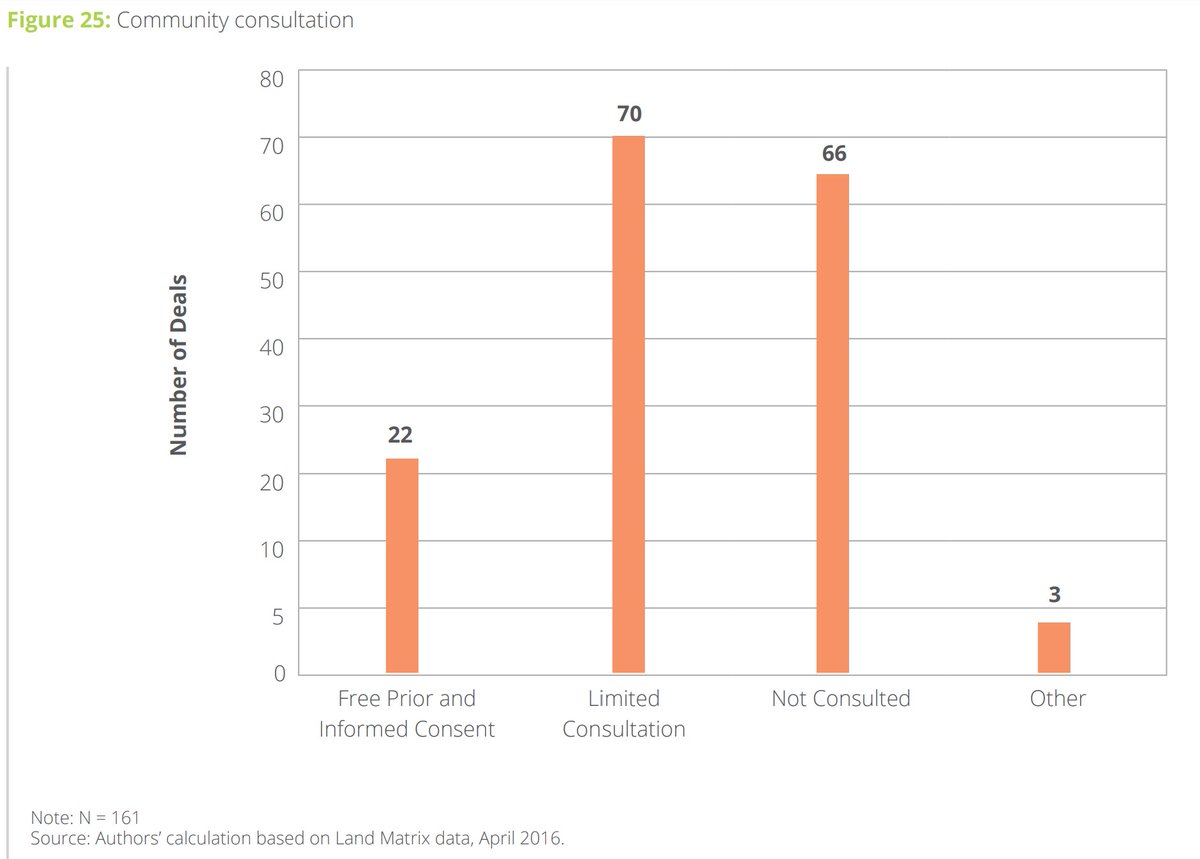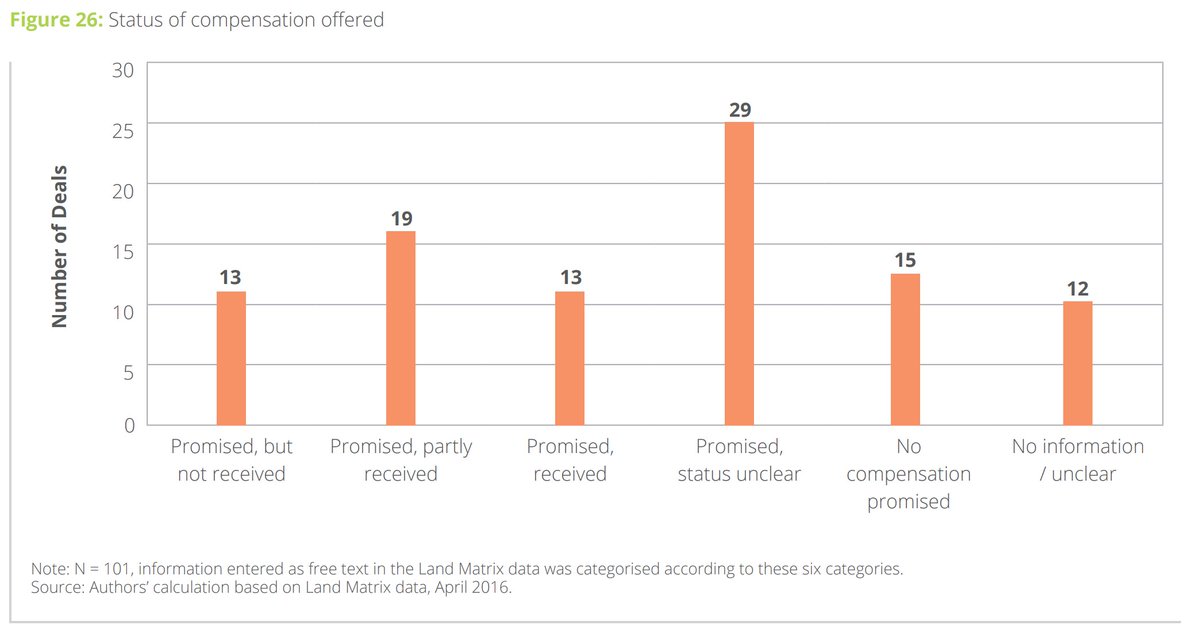What can we learn from the 'global land rush' about the risks of large-scale land-based carbon removal in climate mitigation strategies?
A to put the numbers - like #Shell's reference to needing a new 700Mha forest - into some context https://twitter.com/meganrowling/status/1360174491725410308
to put the numbers - like #Shell's reference to needing a new 700Mha forest - into some context https://twitter.com/meganrowling/status/1360174491725410308
A
 to put the numbers - like #Shell's reference to needing a new 700Mha forest - into some context https://twitter.com/meganrowling/status/1360174491725410308
to put the numbers - like #Shell's reference to needing a new 700Mha forest - into some context https://twitter.com/meganrowling/status/1360174491725410308
700Mha sounds a lot, & it is.
From 2000-2016 - during the 'global land rush' - @Land_Matrix documented contracted large-scale land deals covering c. 25Mha
That period tells us a lot about the risks of large-scale reliance on land for carbon removals
From 2000-2016 - during the 'global land rush' - @Land_Matrix documented contracted large-scale land deals covering c. 25Mha
That period tells us a lot about the risks of large-scale reliance on land for carbon removals
It was driven by financial #speculation, #biofuels policies and weak land tenure #rights, & has been associated with widespread dispossession, increasing land #inequality & #hunger
No surprise biofuels crops - palm oil, jatropha, sugar cane - accounted for the biggest land area
No surprise biofuels crops - palm oil, jatropha, sugar cane - accounted for the biggest land area
The deals were concentrated in countries with high dependency on agriculture & weak land tenure rights
No doubt that if companies or countries seek to acquire millions ha of land for carbon removal, they will look for it first in countries with the weakest land rights
No doubt that if companies or countries seek to acquire millions ha of land for carbon removal, they will look for it first in countries with the weakest land rights
And these also tend to be highly food insecure countries, posing significant risks to communities that are dependent on land for their livelihoods
The most targeted region for land deals in this period was Africa
Despite all the focus on comparisons to Brasil - I think Africa is the region whose land will be most strongly targeted for carbon removal in the coming decades
Despite all the focus on comparisons to Brasil - I think Africa is the region whose land will be most strongly targeted for carbon removal in the coming decades
These deals weren't developing marginal land - the vast majority was cropland and forestland
We shouldn't be so naive as to think a future land rush for carbon removal won't touch cropland
We shouldn't be so naive as to think a future land rush for carbon removal won't touch cropland
The biggest share of those deals took land that was either held in communal ownership or by small-scale farmers & pastoralists
These are the communities whose land rights are least secure - they face the gravest risk to a new land rush for carbon removal
These are the communities whose land rights are least secure - they face the gravest risk to a new land rush for carbon removal
And we know that the vast majority of such deals do not include a proper process to seek the Free Prior and Informed Consent of affected communities (under 20% from the sample for which data was available in 2016)
This should be non-negotiable for any carbon removal project
This should be non-negotiable for any carbon removal project
If the global land rush over the past 20 yrs is any guide 2 the risks of reliance on very - very - large-scale land use in climate mitigation - whether for afforestation, BECCS or biofuels - we should do everything possible to minimise it
All data from https://landmatrix.org/
All data from https://landmatrix.org/

 Read on Twitter
Read on Twitter